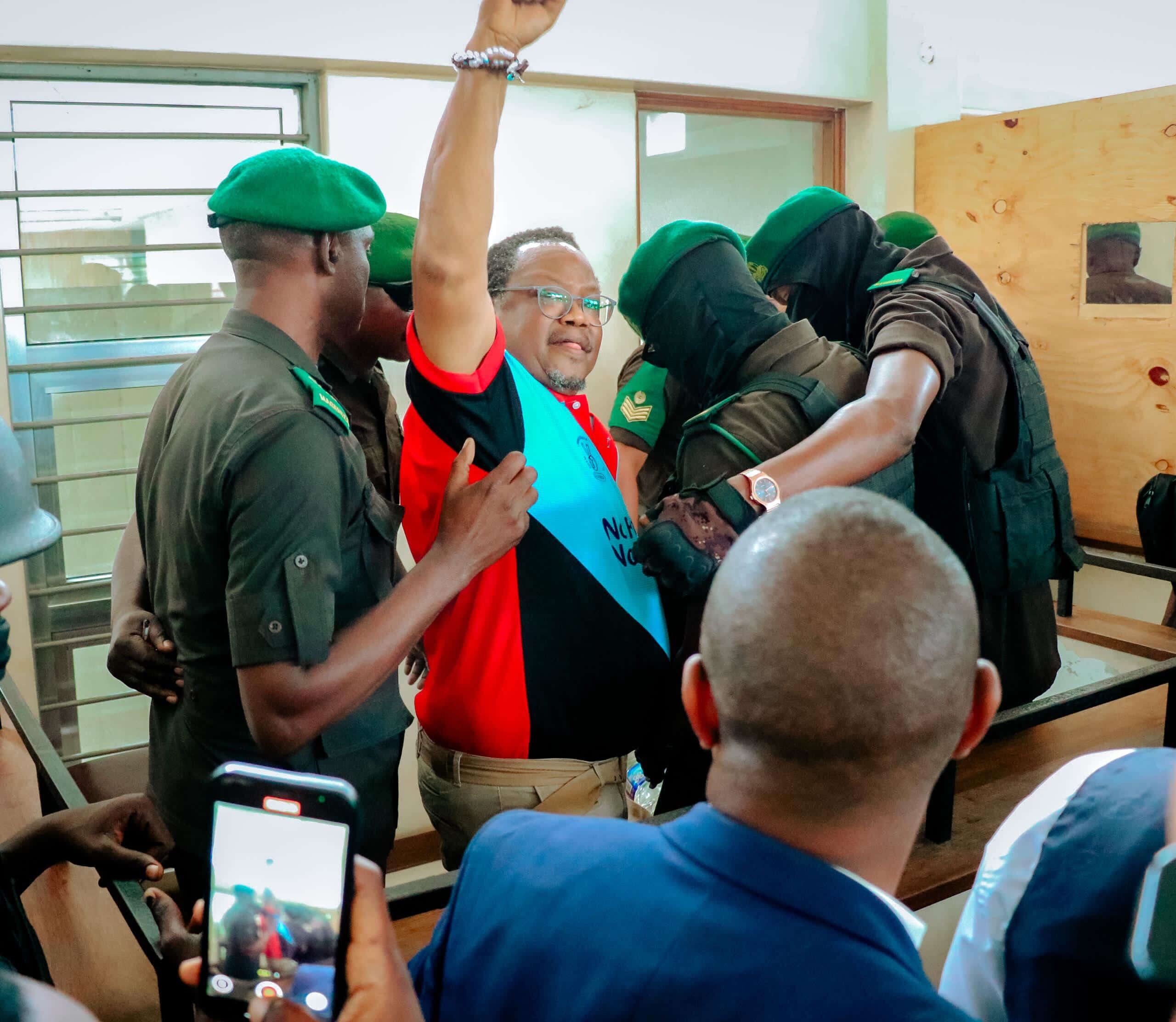Tanzania’s opposition leader and CHADEMA party chairman, Tundu Lissu, will remain in custody as his high-profile treason case has been postponed once again. The Kisutu Resident Magistrate’s Court in Dar es Salaam has now scheduled August 13, 2025 for a decision on the key legal issues raised during the ongoing proceedings.
Lissu, who has been detained since April, is accused of inciting the public to block the 2025 General Election in Tanzania, a charge that falls under treason and carries the death penalty if found guilty. He has denied the charge and claims the case is politically motivated.

The latest adjournment follows a courtroom exchange between Lissu and State prosecutors, where Lissu, representing himself, urged the court to dismiss the case altogether, accusing the prosecution of using unnecessary delays to punish him without trial.
“I have stayed in remand for months. I’m being held with death row convicts so I can get used to the idea. Enough is enough! Either proceed with the case or drop it,” Lissu told the court.
In response, State Counsel Nassoro Katuga asked the magistrate to delay the case, saying they are still waiting for a ruling from the High Court on whether witnesses in the trial can be granted protection. That ruling is expected on August 4, 2025.
Presiding magistrate Franco Kiswaga said he needed more time to analyze the arguments presented by both sides and conduct legal research before making any procedural rulings. He emphasized that the matter involves weighty constitutional and legal questions and would not rush his decision. The court also instructed the prosecution to ensure the High Court rules on the witness protection application without further delay.
Rights groups including Amnesty International, have called for Lissu’s immediate release, citing his prolonged detention without trial and the use of courts to silence opposition voices ahead of Tanzania’s October elections.
Lissu’s legal team has raised concerns about unlawful prison conditions, including reports of him receiving medical treatment not permitted by law, and rejected the use of anonymous witnesses, arguing that it undermines a fair trial.
This is not the first time Lissu has been arrested but it is the most serious charge he has ever faced.
The case has continued to draw widespread attention across Tanzania and beyond, with many seeing it as a test of the country’s commitment to justice and democratic freedoms.





